
By TRACY SHAWN, MA
“You think your pain and your heartbreak are unprecedented in the history of the world, but then you read. It was books that taught me that the things that tormented me most were the very things that connected me with all the people who were alive, or who had ever been alive.” ~James Baldwin, American author (1924-1987) In The Power of Myth, the late scholar and famous mythologist Joseph Campbell explains that stories help give us relevance and meaning to our lives and that “… in popular novels, the main character is a hero or heroine who has found or done something beyond the normal range of achievement and experience.” In response to Campbell’s discussion about how the hero’s journey in myth and literature is about creating a more mature — and better — version of oneself, the distinguished journalist Bill Moyers pointed out how everyday people — “who may not be heroes in the grand sense of redeeming society” — can still relate to a protagonist’s transformation, allowing even the most outwardly meek of us to embark on an inner kind of hero’s journey. The simple act of reading a novel, then, can give us a psychological shot of courage, encouraging personal growth while reducing anxiety. In fact, there’s even a term for this phenomenon: bibliotherapy. First coined by Presbyterian minister Samuel M. Crothers in 1916, bibliotherapy is a combination of the Greek words for therapy and books. And now author Alain de Botton has created a bibliotherapy service at his London company, The School of Life, in which bibliotherapists with PhDs in literature introduce people to books that de Botton states, “…are important to them at that moment in their life.” The author of How Proust Can Change Your Life, a book that explains the significance of literature and how it gives insight into one’s own journey, and Status Anxiety, a nonfiction book about overcoming the universal anxiety of what others think of us, de Botton blends literary fiction and self-help through his bibliotherapy service. Dubbed a “brilliant reading prescription” by de Botton, this therapeutic approach helps encourage emotional healing by matching whatever personal challenges a person is going through with specific literature. Of course, the concept behind bibliotherapy is nothing new. Inscribed over the door of the ancient library at Thebes was the phrase “Healing place for the soul.” And among the many examples of bibliotherapy practices over time, both Britain and the United States established patients’ libraries in hospitals during the First World War, where librarians used reading to encourage recovery for soldiers with physical as well as mental trauma. Now, science is proving the mythologists, authors, and librarians right. A recent study at Emory University has shown that novel reading enhances connectivity in the brain as well as improving brain function. Published in the university’s eScienceCommons blog on December 17, 2013 by Carol Clark, the lead author of the study and neuroscientist, Professor Gregory Berns, is quoted as saying, “The neural changes that we found associated with physical sensation and movement systems suggest that reading a novel can transport you into the body of the protagonist.” Clark also writes that Berns notes how the neural changes weren’t just immediate reactions, but persisted the mornings after the readings as well as for five days after participants completed the novel. Good stories, then, not only help us relate to the hero’s journey, as Joseph Campbell pointed out, but the act of reading them actually can reconfigure brain networks. This means that not only are we able to escape from our problems while reading, it also increases compassion to another’s suffering — as well as perhaps to one’s own — which can be a major aid to self-growth and healing, as well as helping to decrease anxiety and depression. Readers have intuitively known this all along. No authors, mythologists, or scientists need to explain to the readers who responded to a question in the Social Anxiety Network (posted in March 2012) about whether reading helps anxiety and depression. As one respondent said, “For me reading lets me escape into another ‘world’ it’s like I become the protagonist,” while another reader shares, “Definitely — it takes me to another world for a while and gets my mind off of obsessing over my problems, anxieties, etc. Reading a good book is always relaxing therapy for me.” Looking at both the scientific and anecdotal evidence, it’s apparent that researchers and readers are on the same page. So remember that a prescription for your distress may just be an arm’s length away — to your bedside table, where that novel is patiently waiting for you to step inside and embark on your own inner journey. First Published in Psych Central Magazine 
Author Tracy Shawn enjoys visiting local book clubs and is also available to Skype as a guest author at one of your book club gatherings. Please feel free to contact her on her website: http://www.tracyshawn.com/contact-t-shawn/
Tracy Shawn lives and writes on the Central Coast of California. Her award-winning debut novel, The Grace of Crows, is about how an anxiety-ridden woman finds happiness through the most unexpected of ways—and characters. Hailed as a deeply moving heroine’s journey and a story that lingers in the mind long after the finish, The Grace of Crows has also been regarded as a powerful fictional read, which paints an accurate portrayal of generalized anxiety disorder and a healing opportunity to the reader.
0 Comments
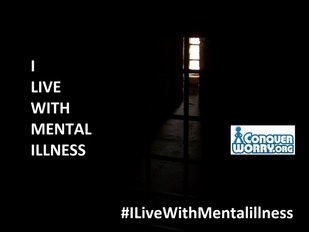 A Saving Encounter on the Streets During the late summer of 2005, I found myself homeless. I spent two weeks in an overnight shelter in the city of Camden, New Jersey. Most people would consider this a terrible and frightening situation. However, providence allowed for a different situation and outcome. To begin my story, I suffer with mental illness. My mental illness was not the direct cause of my homelessness, but an indirect cause. I had been living in my own apartment for several years, working a fulltime position as a human services case worker. However, the stress of the position resulted in my first hospitalization in a psychiatric hospital. I spent nine months in the hospital, during which I became stabilized. Because of the length of time, I lost my apartment. The loss of my apartment started a whirlwind of circumstances, some good and some bad. After my stay in the hospital, I lived in boarding homes. The boarding homes were private residences, where the owners were licensed to take in clients. Most of the owners treated me kindly, some not so kindly. I had to deal with jealous women and men offering propositions, in the boarding homes which housed coed clients. As a condition of my residence, I had to attend a partial-care behavioral health program during the day. The program was an opportunity to socialize, but my time at the not so comfortable boarding homes made me more resilient to find my way back to having my own home. I had a case worker assigned to me. At first, she seemed kind and concerned. I would try to call her at her office every week so that she could help me find my own apartment. I would leave several messages for her. She would not return my phone calls. I became very frustrated and felt hopeless. I left my last boarding home in the middle of the night. I felt fearful and unsafe. I snuck out without telling anyone, leaving behind all my clothes and possessions. Because I had money coming in, I was able to take a taxi to a hotel. The next day, as a means for revenge for my poor treatment by the owner of the boarding home, I canceled the money order I gave her the previous day, for the current month’s rent. Then, I attempted to call my case worker. My caseworker was forced to come visit me at the hotel because I told her supervisor that I did not feel safe at the boarding home. Upon her arrival, she treated me with disdain; she acted as if she had a poor attitude. I tried to explain to her that I wanted to get my own apartment and that I had the money to do as such. She would not listen to me. She was busy talking on her cell phone. I started to cry and became so angry that I turned over the night desk. Although I would not hurt a fly, she stood there watching to see if I would come toward her in a violent manner. I knew that if she were truly afraid, she would have turned around and left immediately, but she was taunting me. As per agency rules when affronted with possible violence, my case worker finally left me standing alone in my hotel room. I was so scared of being left alone without any help, I went after her. I followed her all the way to her car, begging her without shame, not to leave me. She ignored me and drove off. Because the hotels were not for extended stays, I had to go to one hotel to the next until I ran out of money. At the last hotel, I was so stressed that I fainted in the lobby of the hotel. I was taken, by ambulance, to a hospital in Camden, New Jersey. While there, a social worker found a shelter where I could stay the night. The shelter was a row home in the city. The men slept upstairs while the women slept downstairs. I was very nervous and a little afraid. There was no room to be judgmental of the other people; we were all in the same situation. The shelter was only temporary; everyone had to leave in the morning. If anyone wanted to stay again, he or she had to come back the next day just before the shelter opened. There was a young, Caucasian man that befriended me who also stayed at the shelter, with me being African American. He was quite handsome. I found out later, through our conversations, that he was Jewish. I had to go back to the shelter for two weeks. I did not know anything about the city, nor did I know my way around it. This young man was a Godsend to me. He took me to a place to get clothing. I was fortunate to find a bag of donated clothing that did fit me, and the clothing was very fashionable. I did not miss a meal. The young man and I went to a local church for our daily meals. The food was satisfying and delicious. Obviously, there was nowhere to clean up or take a shower. The gentleman that directed the shelter allowed me to get up early before anyone else to wash up in the bathroom with some donated toiletries. I thanked God for his kindness. I felt blessed and protected because I had somewhere to lay my head down at night, food to eat, and clothes on my back. My time on the streets of Camden, New Jersey came to an end. I did not see the realities of city life: the drugs, crime, and prostitution. I did see the poverty, however. The young man must have seen that I was becoming too attached and comfortable to him and this city life. He had to implement some tough love. He took me to a one-stop agency that helped homeless individuals. He said that he had to leave me there because he had to continue by himself. He said that I would find help at this center. We said goodbye to each other. That was the last time that I saw the young, handsome man. The one-stop agency did help me. That day I was placed in a shelter for women with mental illness. The shelter was a full-service agency. I was able to stay during the day and night, take showers there, and receive my meals there. I received counseling and guidance to help me get back on my feet. Today, I have lived in my own home for over seven years. I have earned two degrees, including a Master’s. I have written two award-winning books of inspirational poetry. I remain thankful for what I do have, never taking it for granted. I did call the shelter, where I and the young, handsome man had a brief encounter, to thank the director for being so kind to me and for watching over me. I believe that I had to experience homelessness to make me strong for whatever destiny God has planned for me, and for my ability to relate to and console others. As such, I have no regrets. 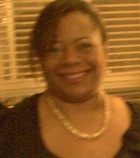 My name is La Shea A. Stanard. I am a writer and author of inspirational poetry. I believe that we all have different experiences that lead to similar life lessons. We also all have gifts that can lift us to new heights, if we allow them. I write poetry to express those common, life lessons for clarification and inspiration. My life motto comes from my favorite poet: “This above all: to thine own self be true, and it must follow, as the night the day, thou canst not then be false to any man.” –William Shakespeare (Hamlet) Connect With La Shea Blog: lasheastanard.wordpress.com Facebook: facebook.com/lashea.stanard1 Twitter: @LASHEASTANARD 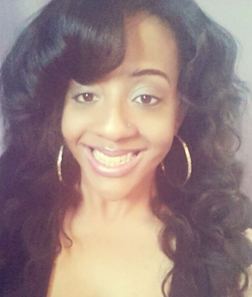 My Name is Jasmin Pierre. I am from New Orleans, Louisiana and I am 26 years old. At the age of 20 I was diagnosed with Clinical Depression. For almost 6 years ive been battling this illness. The worst of it came in 2014 when I nearly almost died. This video I created spreads Awareness and also gives my personal testimony of how I got through everything and came out even stronger. I made this video to help people realize they can come out of the darkness and find the light again. I also made this video to educate people who may not know how serious clinical depression really is. It is my mission to make this video go viral. Over 350 million people suffer from some form of depression around the world. I want people who are suffering with Depression or just life situations in general to know that they can and will come out victorious as long as they have a faith in God, a faith in themselves, and they NEVER EVER give up. Please watch, share, and subscribe to my YouTube channel. Help me spread awareness. Connect With Jasmin Twitter: @JasGotFaith Instagram: @JasGotFaith Facebook: Jasmin We’ve seen this acronym for fear flying around the internet and it’s good, as in, it fits: Here’s Sally’s version. It’s rather more dramatic ( much like herself, some would say..). It better captures the 4am-paralyzed-with-fear feeling that can mug us as we half wake. Of course then we’re wide awake, fretting that we won’t get back to sleep, and often we don’t. We tend to ask questions in our head when we worry. We spoke about this in our post about fear. Most of those questions start with “OMG what if etc etc??” or “What will I do if etc etc?” And then the feeling of panic comes up, often pretty quickly, so quickly it feels automatic, out of control. There is much current research that suggest thoughts tend to precede feelings. If we think a fear-based thought we feel afraid. If we recall a happy occasion we feel happier. Others suggest that feelings bring on a cascade of negative thoughts. We tend to think it is probably a combination of both. We respond to happy faces within milliseconds, babies enjoysmiling faces more and look at them for longer than serious or scared faces. We feel better when we see a smile: See? So it follows that if we can control how we think, we’ll have a better chance of controlling how we feel. “Aaaaah don’t worry” If someone we love is worrying we are inclined to say “Ah don’t worry” or “Ah stop worrying, sure that won’t help”. I bet you’ve said that – I bet you’ve had it said to you! And just now have a think back – how helpful was it? If it wasn’t always comforting, did you instead feel annoyed? Maybe even dismissed? Here’s a tip: Don’t tell yourself to stop worrying. Because you can’t – at least not instantly. So you’ll only annoy yourself. We propose a different approach: This approach to worrying might raise a few eyebrows at first. But there is a logic and it’s this: if I tell you now to NOT think about a blue elephant, what do you visualize? Erm… a blue elephant by any chance?? So there is a certain amount we cannot control. However, we’re suggesting you focus on what you can control: how big your elephant is, how many there are, where they are, how noisy they are, what they are doing, even if they’re moving. Similarly telling yourself or someone not to think about the thing they are afraid of, or worrying about, won’t work well. At least not at the beginning, or in a high octane stress environment. And so instead we encourage you to pay attention to their thoughts, and go with, rather than judge and resist them. Attend to, but engage differently with your worry. When you pay attention to your worry thoughts you will notice two things: 1 You ask questions but you don’t answer them 2 You make predictions with neither experience nor evidence. Unanswered questions: Those of you with kids will know that if you want to frustrate a child, let their questions go unanswered. (Tanya will attest to also knowing to how frustrating it is as a parent to ask your children a question and getting no answers). You see, we don’t really grow out of that. We need answers, because we like to feel in control. Predictions: We make fiercely dramatic predictions assumptions and scenarios. They pop into our heads erratically, illogically, and we believe them as if they are real. It all sounds a bit mad, and yet it’s quite normal. We can reign this in though by being more aware of what we are doing and how. Notice and listen to what you are saying to yourself. You’ll see that you very rarely have any evidence to support the non fact that your cracked nail is a sign that you have cancer. Or whatever. When we don’t challenge thoughts, don’t even notice them , they just reappear and replay. That’s what makes us even more anxious, wakeful, stressed, distracted and before long we are feeling the physical symptoms of anxiety. And so here is a ‘worry technique’ to deal with these habits of worrying. This technique is about worrying constructively rather than destructively. It has a beginning and an end. How to use your technique: Answer each question specifically. What am I worrying about? The future? Too big. Right now what exactly is one thing am I worrying about? Maybe it’s exams. Let’s take that as an example. Ok, next what’s the worst thing that could happen? You’ll fail and your life will be ruined and your tutor will literally kill you? No? So maybe the worst is you will fail. Ok. Next: What is the percentage likelihood of this happening? You might want to jump in there with 50% .REALLY?? Use past experience, of failing, evidence, your study level, etcetc. Most 50% answers turn into 5% or less if you really, really think about it rationally. If it’s 0%, move on, you’ve finished worrying and remind yourself of that when it comes back into your head (because it will!!) If it’s more than 0% then next up is What will I do if this happens? So..maybe repeat? Query? Cry, be upset, even angry, talk to friends, maybe a therapist? and so on Last question – Is this a good way to deal with it? If the answer to no4 is “I’ll jump off the cliff and bring the paper setter with me” then the answer to no5 is a resounding no, so go back, figure out no 4 until you have a yes. So by now you have now considered and come up with a solution to the worst possible outcome, even if its grim, even if it’s hard. Any scenario less than worst is not worth devoting time to because you now have evidence that you can create solutions to the very worst. Yay you! So thats’ one way to manage worry type thoughts that has worked for many of our clients. This can be supported with learning how to be generally more mindful. Remember, worry is fear about something that is not actually happening in the moment. The more we can stay in the moment, the more we can stay worry-free. So, check out our ‘Mindfulness Techniques‘ and while you’re at it, our ‘10 Tips for Practicing Gratitude‘. As always – feel free to mail us any of your own tips! We’d be happy to include them :) Originally Posted 11/14/2014 - Link 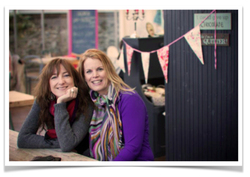  What does Depression feel like? Depression feels different for everyone. We all experience Depression in unique ways, from the number and severity of symptoms, to how we cope with this crippling and potentially fatal “invisible” illness. For me, Depression feels like drowning. Or, I guess I should say it feels like what I imagine it would be like to drown. Have a look at this picture. What do you see? When I look at this picture, I see a woman who has fallen into a blue abyss. She doesn’t struggle or fight to break the surface. She simply accepts her place. She can see the sky through the clear blue water, the brightness, the possibilities, and the life she could have. But she doesn’t reach for it. She allows herself to sink lower and lower. She accepts her existence in the blue abyss, and waits hopes for the day when she can finally breathe again.For me, this is Depression. This is how it has felt for me. It’s as if I could see the possibility of living a happy life, and all I had to do was break the surface of that water. But I didn’t. It’s not that I couldn’t do it, because I don’t think that I tried. And people judged me, and blamed me for not trying. It wasn’t that I couldn’t break the surface of that water; it was that I couldn’t even try. It took all of my strength (in fact it took more strength than I thought I had) just to get up every day, go to school, go to work, and crawl back in to bed. It was a living hell, a nightmare. And they were right, I wasn't trying. But they didn't understand that I couldn't. I just couldn’t. I wanted to, I really did. I just couldn't. For me, Depression feels like drowning. The crushing weight of sadness and despair slowly starts to compress my lungs, and I panic. Then I start to realize that for some reason, I’m not floating back up to the surface. I wonder if and how I will ever survive this. And then, sometimes as suddenly as it all began, I’m above water. I can breathe again. What does Depression feel like for you? Share and comment below. Much love, Rain Picture Source: Eyes of Odysseus Originally published for Depression Ever After on August 18 2014 at http://depressioneverafter.blogspot.ca/2014/08/drowning.html  My name is Rain, and this is from my blog about Depression. My goal is to share my Depression Story so that others might learn from my mistakes and find inspiration in my success. Connect with Rain: Blog: Link Facebook Page: www.facebook.com/depressioneverafter Twitter: @rain_gill Google+ Page: Link Pinterest Board: Link 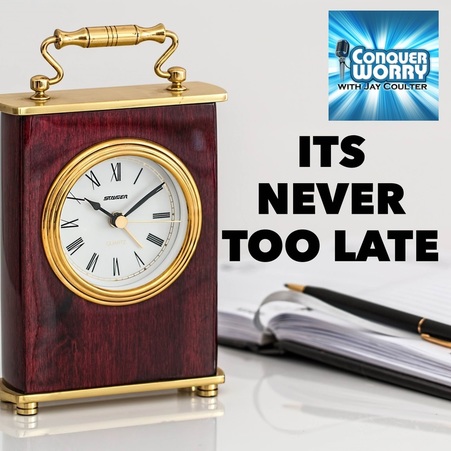 My name is Jonny ward or the anxious fireman on Twitter (@jonnyward21). About two years ago I was fine, absolutely fine, confident, self assured, resilient. But underneath that my mind was bubbling. I was stressed from work, organising things and life in general. There had been some ill health in a couple of close family members and life was becoming harder. I had also been to some particularly nasty incidents at work. I didn't realise how much these things were affecting me so I just carried on. I started having heart palpitations, both during the day but mostly at night whilst I was trying to sleep. I did what most men would do, I ignored them. I say I ignored them but what I actually did was massively over think and worry about them without telling anyone. I started to worry more and more that my physical health was deteriorating when it was really my mental health. There is a history of health anxiety in the family and it was now my turn. I started taking myself to A and E only to be told nothing was wrong. I convinced myself something was wrong to the point I started withdrawing from anything physical. This was especially hard to do with my job so work was becoming worrying. The more I worried the worse the palpitations, or panic attacks became. As they got worse I became more withdrawn from everyday life. I started to avoid my normal activities like the gym, the pub, seeing friends as I didn't want to have a panic attack in front of them. They caused me to sweat, feel very uncomfortable, giddy and just want to leave the situation. My personal hygiene, fitness, sleep and normal happy go lucky attitude were all suffering. I found it hard to go to work, leave the house or go on holiday. Then I caught myself drinking to calm myself down. It was this point I new something had to be done. I saw the doctor, who prescribed me medication and put me onto a cbt course with the NHS. I contacted mind who offered me counselling. I also started meditation and gradually reintroducing myself to my old life one step at a time. It was a long process but gradually I got better. As I got better the palpitations stopped and my stressed state calmed. I slowly but surely returned to my old self. Almost anyway, I don't think I will ever be my old self again, nor would I want to be. I'm 30 now, but in my early twenties would have been someone who thought mental illness was not a real thing. I know now that it is the most lonely, frightening illnesses anyone can go through. But for all the dark, withdrawn days I spent in bed just hiding from the world. There has come a brighter way at looking at the world. I understand myself more, my triggers, my mind. I am also much more understanding, compassionate and willing to listen to people who are suffering. In a way in glad it happened, it was rubbish, but I'm glad it happened. I always wanted to experience life and all it has to offer. I know now that means experiencing the darker side of it. The best advice I can give anyone, whatever you feel, admit it. Don't shy away, allow yourself to feel and understand it. Don't fear your emotions, they are just your reaction to the world around you. They are normal. My best to you all, Jonny Ward  |
Build Your Action Based Stress Reduction System
Popular PodcastsOlympian Suzy Favor Hamilton - From Fame to Prostitution to Advocacy
Hall of Fame Basketball Star Chamique Holdsclaw on Mental Resilience Diana Nightingale on her husband Earl Nightingale's Principles for Mental Health Success JoAnn Buttaro on Date Rape & PTSD Survival Story: Its Never Too Late Gabe Howard on BiPolar Advocacy Phil Fulmer on Teen Suicide Prison, Bipolar and Mania with Andy Behrman Columbia Univeristy's Dr. Rynn on OCD Archives
March 2018
Categories
All
|

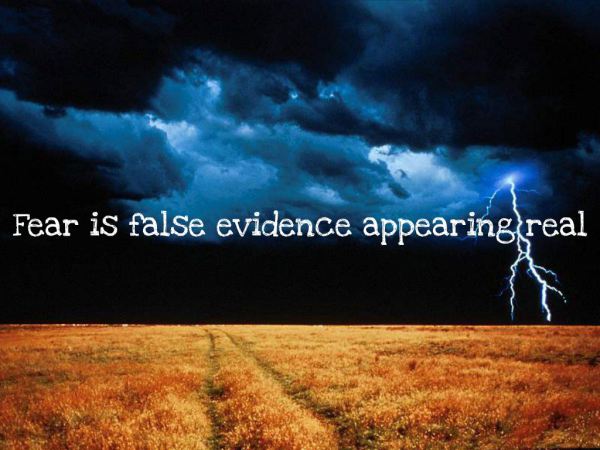
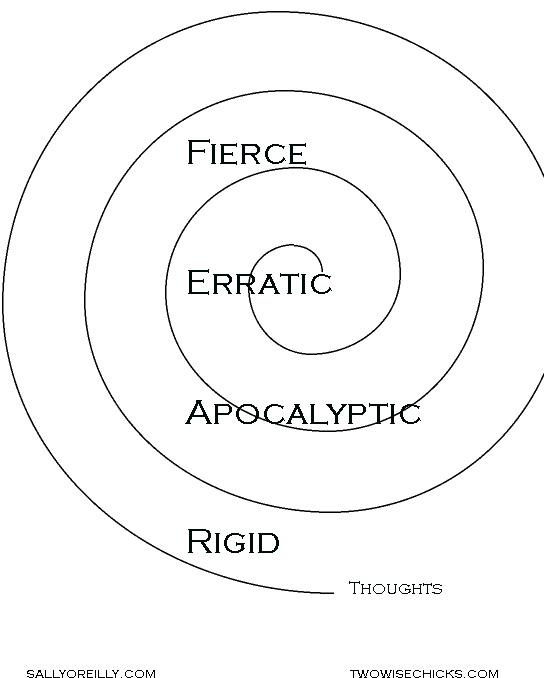


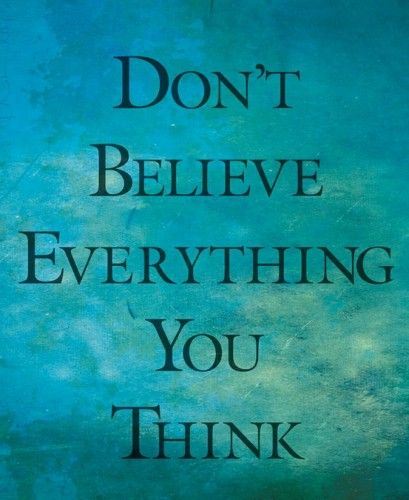
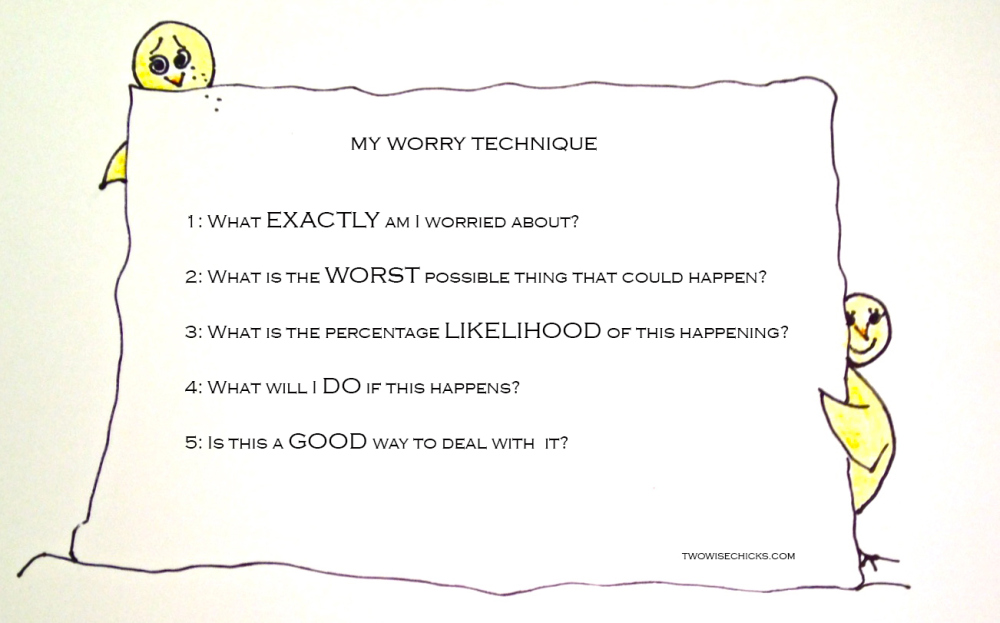

 RSS Feed
RSS Feed





